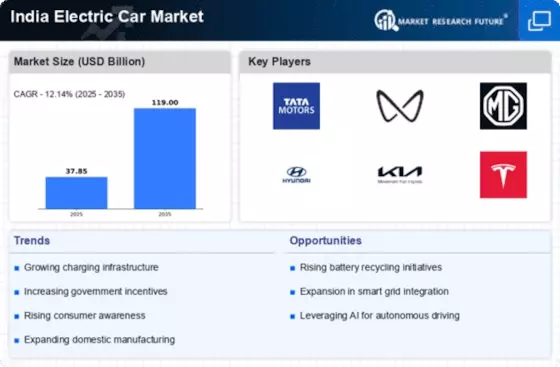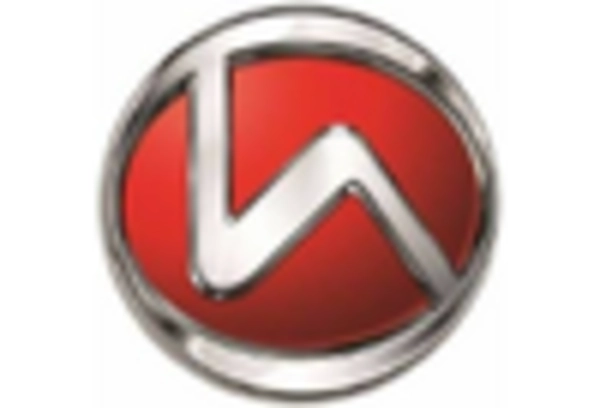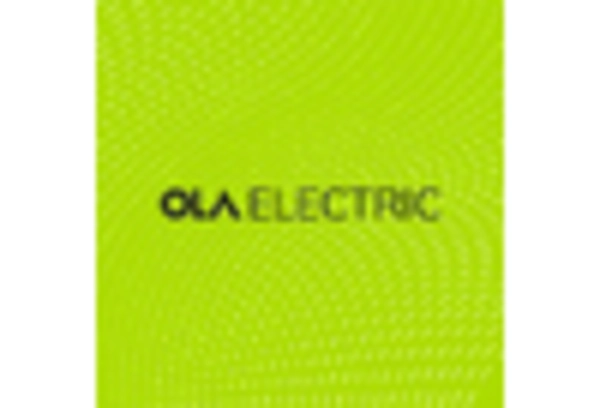Market Analysis
In-depth Analysis of India Electric Car Market Industry Landscape
The market dynamics of the electric car industry in India are evolving rapidly, driven by various factors such as government policies, technological advancements, consumer preferences, and infrastructure development. One significant driver is the Indian government's push towards reducing carbon emissions and dependence on fossil fuels, which has led to the implementation of ambitious targets for electric vehicle (EV) adoption. Policies like the Faster Adoption and Manufacturing of Electric Vehicles (FAME) scheme provide subsidies and incentives to both manufacturers and consumers, making electric cars more accessible and affordable. Additionally, regulations mandating stricter emission norms and the introduction of BS-VI standards have further propelled the demand for electric vehicles in the country.
Furthermore, technological advancements have played a crucial role in shaping the electric car market dynamics in India. The continuous improvement in battery technology, resulting in lower costs and increased energy density, has significantly enhanced the performance and range of electric vehicles. Moreover, the development of indigenous electric vehicle components and charging infrastructure has further bolstered the growth of the electric car market. Collaborations between domestic and international companies for technology transfer and local production have also contributed to the expansion of the electric vehicle ecosystem in India.
Consumer preferences are another key factor influencing the market dynamics of electric cars in India. With increasing environmental awareness and concerns about air pollution, there is a growing shift towards cleaner and greener transportation options. Electric vehicles offer a sustainable alternative to traditional combustion engine vehicles, attracting environmentally conscious consumers. Additionally, the rising fuel prices and lower operating costs of electric vehicles make them economically viable in the long run, further driving consumer interest and adoption.
Infrastructure development is a critical aspect that impacts the growth of the electric car market in India. The availability of charging stations is essential for alleviating range anxiety among consumers and promoting widespread adoption of electric vehicles. In recent years, there has been a concerted effort by both public and private entities to expand the charging infrastructure across the country. Initiatives such as the National Electric Mobility Mission Plan (NEMMP) aim to establish a robust charging network, including fast-charging stations along highways and in urban areas, to support the growing fleet of electric vehicles.
Despite significant progress, several challenges persist in the Indian electric car market, affecting its dynamics. One major hurdle is the high initial cost of electric vehicles compared to conventional vehicles, primarily due to the cost of batteries. However, with advancements in technology and economies of scale, experts anticipate a gradual reduction in prices, making electric cars more accessible to the masses. Another challenge is the limited availability of charging infrastructure, particularly in rural and semi-urban areas, hindering the widespread adoption of electric vehicles.
In conclusion, the market dynamics of the electric car industry in India are shaped by various factors, including government policies, technological advancements, consumer preferences, and infrastructure development. While significant strides have been made towards promoting electric mobility, challenges remain that need to be addressed collaboratively by stakeholders across the public and private sectors. With continued efforts and investments, India has the potential to emerge as a leading market for electric vehicles, contributing to a cleaner and more sustainable future for the transportation sector.









Leave a Comment